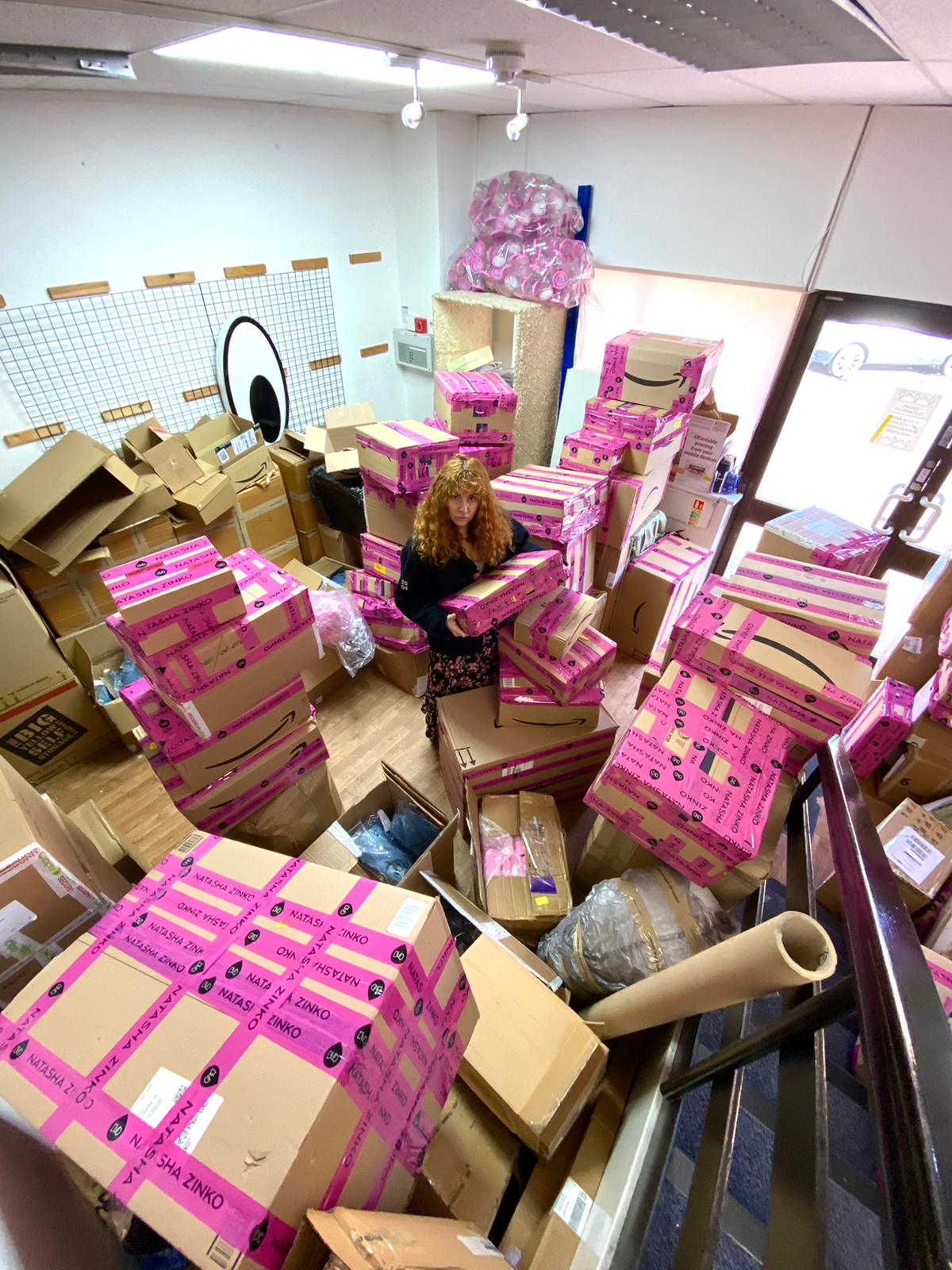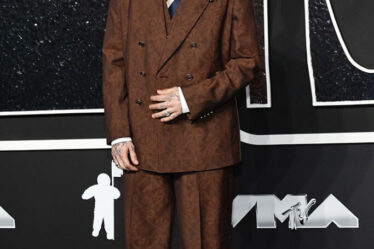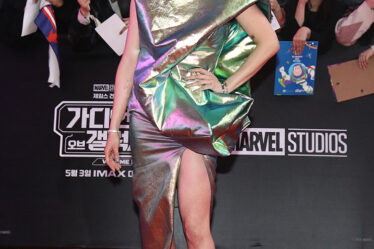
Photo courtesy of Natasha Zinko.
This weekend, as the invasion in Ukraine intensified, our editor-in-chief, Mel Ottenberg, spoke with the Odessa-born designer Natasha Zinko by phone. As bombs began to fall on her family’s hometown late last month, Zinko, whose eponymous womenswear brand is based in London, transformed her Mayfair studio into a hub for collecting donations and much needed medications, PPE, and other survival supplies requested by the Ukrainian Red Cross and the Ukrainian Embassy. As a newly-designated Red Cross representative, Zinko has begun organizing car trips across the border, ensuring that the precious cargo she has been collecting in the U.K. makes its way to the country’s hardest hit areas. Here, Zinko and Ottenberg discuss the unfolding crisis, how to direct funds to those most in need, and the best ways to support Ukrainians in their homeland and abroad. Donate to Zinko’s GoFundMe page here, and support Ukrainians in search of housing and employment in Europe and the U.K. here, and here.
———
MEL OTTENBERG: Hi Natasha. Thanks for taking the time out of your busy day to talk to us. What’s going on today? Are you guys in London?
NATASHA ZINKO: We’re in our London shop, yes, and today we got good news. I just became a representative of the Red Cross for the Odessa region, which means I can collect donations here and send them there. They’re hoping to buy medical supplies with these donations. We have a list from the Red Cross—you can’t usually buy antibiotics without a prescription, but as Red Cross representatives we can now buy them wholesale.
OTTENBERG: Amazing. Just a little backstory here, I called Natasha yesterday because I saw a link and I was like, “Hey, I want to help.” You sometimes feel like you want to help, but there’s so much going on that it’s easy to just move to the next thing. I saw your link on the Instagram story of our mutual friend Venya [Brykalin], who’s the fashion director of Vogue Ukraine.
ZINKO: That’s how I was as well. I wanted to help, but I didn’t know what exactly to do or how to do it, so I decided to just collect. I donated money from my company, and we ordered things on Amazon that the Ukrainian embassy was asking for. We posted on Instagram asking for drivers to take our supplies to the Ukrainian border. We found some, and communicated with the local authorities, who sent a car to the Ukrainian side to pick them up. I got a picture confirming that they received everything, which was great. We did all this on Wednesday, and since then I’ve been talking to people to figure out how I can be more helpful. I contacted the Red Cross in Odessa, and they said they needed more deliveries there, because it’s kind of difficult to reach that part of the country. Only the Red Cross can deliver there.
OTTENBERG: Because it’s a war zone and it’s impossible to get stuff there?
ZINKO: There’s a war zone in between, and people don’t really want to go that far.
OTTENBERG: I see. Natasha, tell me about yourself. You’re a designer, and you’ve lived in London for how long?
ZINKO: I’ve lived in London for about 10 years now. I was born in Odessa, in Ukraine. I studied at the law academy, and worked in a court there. Then I decided to move to London and studied at the Chelsea College of Art and Design for one year, and finished at Central Saint Martin’s. After that, I started my brand, which is what kept me working in London.
OTTENBERG: How is the fashion industry uniquely prepared to help provide humanitarian assistance, even if the fashion industry doesn’t know it yet?
ZINKO: Last Friday, I received a call from the British Fashion Council offering to help. They were like, “Tell us what we can do.” So, we sent them some links, and they decided to share them on all of their social media accounts asking people to donate.
JOHN MURPHY: Caroline Rush [CEO of the British Fashion Council] is fully supportive. She wants to do every single thing she can to raise awareness, to raise funds, and to help find a solution for all of these refugees.
ZINKO: She called me herself on Friday, and I really felt supported. I think a lot of people understand how important this is, and I’ve received so many messages from friends who are in fashion and want to help. So, it’s not like the fashion world is perfect, but I think it is engaged in this fight.
OTTENBERG: The situation in Ukraine is changing rapidly. How are your family and friends right now?
ZINKO: When it started on the 24th of February, my parents were in Odessa and they heard the bombs at 5:30 a.m. There three bombs that went off around Odessa. Everybody started texting me, “How are your parents?” I was in London, and because of the time difference, I was sleeping. I didn’t realize what was going on. Everybody texted me, “Natasha! Natasha!” I called my mom, and she said, “Yeah. It started.” Nobody believed this would happen, you know? My parents decided to leave, but my grandmother is still there. She is about 100 years old, so she can’t leave, of course. My cousin, who’s like my brother, is staying with her, and my aunt is staying there as well. Every day we’re on the phone. For now, they’re fine, but we don’t know what to expect.
OTTENBERG: How can we, the people who are reading this, help people inside and outside the country?
ZINKO: I was thinking the same thing. “How can I be helpful?” I’ve found a way. I am going to run this donation program, and I think the more we collect and the more we send there, the better. Medications are still needed because they’re sending more and more injured people from across the region to Odessa hospitals. I think everybody can find their own part to play, even just by spreading the word.
MURPHY: And sharing the link. Whether you can give $5 or whether you can give $500, whatever you can give, every single bit will help these people. Now, Boris [Johnson] has just decided—
ZINKO: Yes! This just happened, I was reading about it before this call. Boris said that next week, the UK government will begin giving refugees from Ukraine work visas. So, I can sponsor people by giving them jobs at my company, for example. People are already contacting me to ask how to get involved.
OTTENBERG: That is an amazing way to support people fleeing from Ukraine, and also an amazing way to connect with people.
ZINKO: Of course. I think the best way is to share, actually, and for that, Instagram works. It has connected so many people. But I think it’s so good when people can come and work, because the main thing that happens when you go to a new country is that you need money. You need work. When you’re focused and settled, you’re less stressed.
OTTENBERG: I’m so interested in this, because I have a very pessimistic view of the future of America. When Trump left office, it became easier to carry on with your life and not think about the end of the world even though the dark side is growing and democracy is more and more fucked. Here in the U.S., that’s just the way it is now. So, it was really inspiring to be in Europe and see people really speaking up and talking about Ukraine and democracy in big ways. It was profoundly moving. So, the fact that you’re doing all this is just amazing. Do you have any advice on news sources to follow?
ZINKO: I’m looking at everything now. There are some people doing, like, hubs for workers. In a few countries where Ukrainians have fled, there are places that advertise open positions so that people can move there.
OTTENBERG: That’s great.
MURPHY: It’s this message of hope—we want people to understand there is hope. There are solutions, and we are going to do every single fucking thing we can to make sure that people understand, “Please, this is the way to make a change.”
ZINKO: I speak to a lot of Ukrainians these days, and the ones who are abroad are looking for work for now, but they want to go back. They all dream about returning home to Ukraine.
OTTENBERG: I mean, Venya packed for a four-day trip, you know what I mean? It’s crazy that people were just traveling casually, to go to fashion week. He was like, “How much stuff do you bring with you to fashion week?” I’m like, “Well, I kind of bring a lot, because I never know what I’m going to end up feeling. He’s like, “Fuck.”
ZINKO: I know, I talked to him.
OTTENBERG: The Ukrainian language is very similar to Russian, right?
ZINKO: No, Ukrainians speak Russian and Ukrainian. There are some Ukrainians who only speak Ukrainian, some Ukrainians who only speak Russian. I am mixed. I speak Ukrainian and Russian.
OTTENBERG: So, you grew up speaking both?
ZINKO: I’m from Odessa, and historically, Odessa people speak Russian. But they will never want to be part of Russia. This is the important difference.
OTTENBERG: You were born in the Soviet Union, right? That’s something I want to talk about for a second. Please remind me when you became Ukraine, and became free of the Soviet Union.
ZINKO: 1991.
OTTENBERG: Has war been a presence throughout your life?
ZINKO: I was young, you know? Maybe I didn’t understand it so much. Maybe my parents felt it more. Now, you can do more private things there, like start a company. In the Soviet Union, you were not allowed to have a private company. Like, everybody was doing it, but it was illegal.
OTTENBERG: This isn’t a new conflict in this region, right? It’s escalated in a terrible way, but in a lot of ways, there has been a heavy tension between Russia and Ukraine for like 20 years, right?
ZINKO: Yeah, at the least.
OTTENBERG: Your hope is inspiring. Just jumping into this and becoming a Red Cross representative is so fucking cool. It’s just really inspiring to care. John, where are you from?
MURPHY: I’m a New Yorker.
OTTENBERG: Sick. I like it.
ZINKO: John went to a demonstration with a Ukrainian flag on his head.
OTTENBERG: I love it.
ZINKO: He’s a supporter of Ukrainian people. All my friends, we’re all in this. We call our other friends, we try to help families, try to use all the connections we have. My father said he may go to Poland next week and take a car across the border with our new donations. It’s nice that people unite in these situations. That is the main thing in all this.
MURPHY: And the other most important thing: there are over 3 million Ukrainian refugees that are now trying to leave or have left Ukraine. They need our support. They need our help. They need our hope.
OTTENBERG: Anything else that our audience should know?
ZINKO: One big thing is that the U.K. said that they would sponsor visas. The whole country was pushing the government to do this because people want to work, they don’t want just visas to live here. The Polish government has been doing that for millions of people already. My parents were standing on the border for two days. Then you arrive, and the Polish people are so welcoming.
OTTENBERG: Let’s talk about their experience. So, shit goes down at 5:30 in the morning. Then what happens?
ZINKO: My father said, “Oh, it’s no problem. Probably nothing will happen.” He was so optimistic. They have dogs, and they wanted to do an operation on one of the dogs before leaving the country. The day that they finished the operation, my mom called me in the evening and said, “Natasha, maybe we should go.” I was like, “Really, you should.” I called them a few hours later, and my mother said, “We’re on our way. We’re fine.” When they got to the border, there were four kilometers’ worth of cars waiting to cross. They stayed in the car, slept in the car. It took at least a full day. For so many people, it was a nightmare, but people were helpful to each other, and there was no panic.
OTTENBERG: Did they abandon the car and walk?
ZINKO: They stayed in the car, but some of their friends decided to leave their cars and walk, because it was faster.
OTTENBERG: And where are your parents now?
ZINKO: They crossed the border and went to Romania. It was about three, four days in total. Quite long. It’s usually a three hour trip by plane.
OTTENBERG: Well, thank you for telling me that story. I hope your parents are okay, and good luck to your grandma and cousin and your friends. And, thanks for the hope. I’m so glad that you guys took the time to talk to me. I’m really happy to help and I really admire what you’re doing.
ZINKO: Of course. Thank you.



